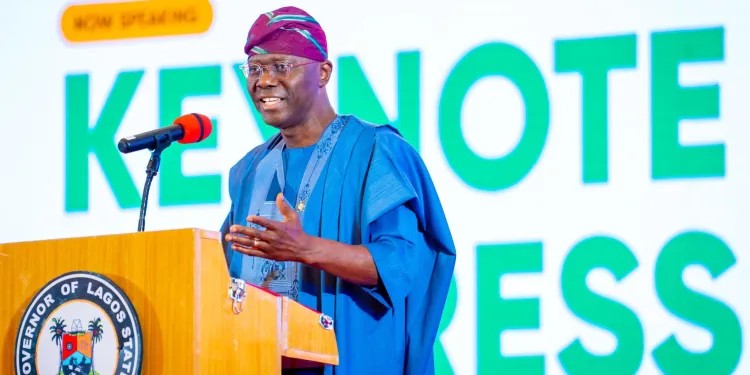Governor Babajide Sanwo-Olu officially opened the Lagos Energy Summit 2025 on Monday with a blistering critique of the Lagos State Ministry of Energy and Mineral Resources, expressing deep dissatisfaction over persistent electricity challenges, especially the continued blackout at the Alausa Secretariat.
“If we can’t keep Alausa lit, then we are clearly not doing something right,” Sanwo-Olu declared during his opening remarks at the summit held at the Oriental Hotel, Victoria Island. His comments set a no-nonsense tone for the high-level energy dialogue.
The summit, themed “Journey to Energy for All,” aims to catalyze energy transformation across Lagos through innovation, investment, and reform. But Sanwo-Olu made it clear that the Ministry’s efforts thus far have fallen short.
The Governor called on the Commissioner for Energy and Mineral Resources, the Permanent Secretary, and other key stakeholders to “re-evaluate their strategies” and “adopt a more innovative, results-driven approach.”
“I expect you to request what is needed to get the job done,” he said, assuring that his administration is willing to fund ambitious, measurable projects that align with Lagos’ new energy goals.
Sanwo-Olu’s comments come in the wake of the newly signed Lagos Electricity Law 2024, which grants the state greater autonomy over power generation and distribution. The law also underpins the formation of the Clean Lagos Electricity Market, which is being shaped by new frameworks like the Integrated Resource Plan, Lagos Electricity Policy, and Strategic Implementation Plan.
The Governor expressed dismay over the apparent lack of preparedness by the energy ministry for the summit, pointing out that “many of the presentations did not align with Lagos’ broader energy goals.” He added, “This summit should be a platform to showcase bold ideas and tangible plans, not vague promises.”
He also criticized the ministry’s reported decision to award exclusive rights to a single company for street lighting in Lagos, describing it as “lacking transparency” and potentially stifling competition.
Looking ahead, Sanwo-Olu outlined an ambitious energy roadmap, targeting the generation of 3 gigawatts of power through a mix of renewables, gas, and waste-to-energy initiatives. Of this, 1 gigawatt will come from solar installations by 2030 — a move aimed at improving energy access and creating green jobs.
To support these goals, the state has launched initiatives for gas-fired plants, grid-scale solar, and captive power systems, with the aim of injecting 6GW of power into Lagos within three years and retrofitting 22,000 streetlights with energy-efficient alternatives.
Additionally, several new agencies and structures have been established to regulate and operationalize the reforms, including the Lagos State Electricity Regulatory Commission (LASERC), Lagos State Electrification Agency (LSEA), Independent System Operator, and Power Enforcement Unit.
The summit brings together investors, policy makers, and energy innovators to chart a bold, inclusive energy future for Africa’s most populous city. Sanwo-Olu’s opening salvo made it clear that underperformance will no longer be tolerated.
“This is not the time for excuses,” the Governor said. “We must light up Lagos — and we must do it now.”

